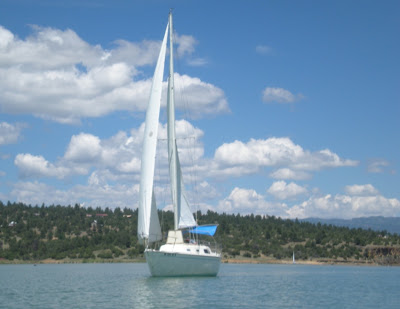How Corinthian Is "Corinthian"?
Corinthian is an adjective that denotes “amateur” in sports and as such is predicated upon whether athletes are or aren’t compensated. But, the word has been loaded with connotations such as sportsmanship, fair play, volunteerism, pursuit of pleasure, competence, individualism, dandyism, dilettantism, social elitism, avoidance or denigration of professionalism, and opposition to the pursuit of profit or role of business in sport.
Dictionaries may not be a great deal of help as they may send the reader on an exploration of architectural columns, brothels, currant fruits, ostentation, and the ancient southern Greek city of
Wikipedia is slightly more helpful, mentioning among less helpful items a definition of Corinthian spirit as an “especially high standard of sportsmanship”.
http://amateurchampionship.com/ makes interesting comments,
amateur "lover of," from O.Fr., from L. amatoremnom. amator, "lover,"). Based on etymology, an Amateur is someone who engages in an activity out of love. As a value system, amateurism elevates things done without self-interest above those done for pay (i.e., professionalism)…. By definition amateur sports require participants to participate without remuneration. Amateurism was a zealously guarded ideal in the 19th century, especially among the upper classes, but faced steady erosion throughout the 20th century….
Ironically, sailing has taken the opposite course. Around the turn of the century, much of sailing was professionals paid by interested idle rich. Today, sailing, especially dinghy sailing, is an example of a sport which is still largely populated by amateurs…. In large keelboat racing, … this amateur spirit has given way in recent years to large corporate sponsorships and paid crews, but even there one will occasionally find a team that stays true to the Corinthian ideal.
The www.englishforums.com forum attempted to start a discussion at http://www.englishforums.com/English/CorinthianValues/hqvcg/post.htm but that didn’t get very far.
The Google books excerpt of Richard Mayne’s “The language of sailing” shows quite a bit of puzzlement,
“Although ‘pertaining to
and speculates
“the word may have had overtones of dilettantism when it was adopted in the early years of yacht racing to describe owners who sailed their own boats….”
Speculations about the origin of “Corinthian” as it relates to sport might be attempted with respect to the Biblical books or to the ethics of classical Greek athletes or sailors from
The term crops up in yacht club names starting in 1872, and there is also a sailing organization at the www.thecorinthians.org/ domain. Harpers Magazine has been quoted as an early user of the term in a sporting context. Many yacht and sailing clubs make awards to skippers and crews who exhibit “Corinthian” values, which can reflect anything from success with all-amateur crews to conformity with ideals of sportsmanship.
The New York Times archives contains a
Admirers of the sort of Corinthian sailor that the Times article lionizes might consider the Corinthian sailor or athlete to be a most noble competitor, one who is motivated by a selfless striving for excellence and not by crass commercial gain. Supporters might point to some of today’s pampered big-ego sports millionaires as examples of what’s wrong with money-grubbing sports professionalism. Critics, however, might consider Corinthians to be too narrow-minded, out-of-touch, unrealistic, elitist, or snobbish, and might quote examples of excessive stringency such as the case of the great athlete Jim Thorpe, who was stripped of his Olympic medals for reasons that today’s sports fans might consider trivial.
Oddly enough, sailing, though considered an elite, expensive, equipment-intensive sport, is also one in which ordinary sailors have opportunities to compete against high-level sailors, both Corinthian and professional.
My own use of the term “Corinthian” does not confine itself to the simple definition of amateur participation, but instead also reflects the associated values of fair play and sportsmanship. In the context of a yacht or sailing club, I would consider a true Corinthian club as one that has strong volunteer participation, both on and off the water, and a deep desire to give back to the sport.























































